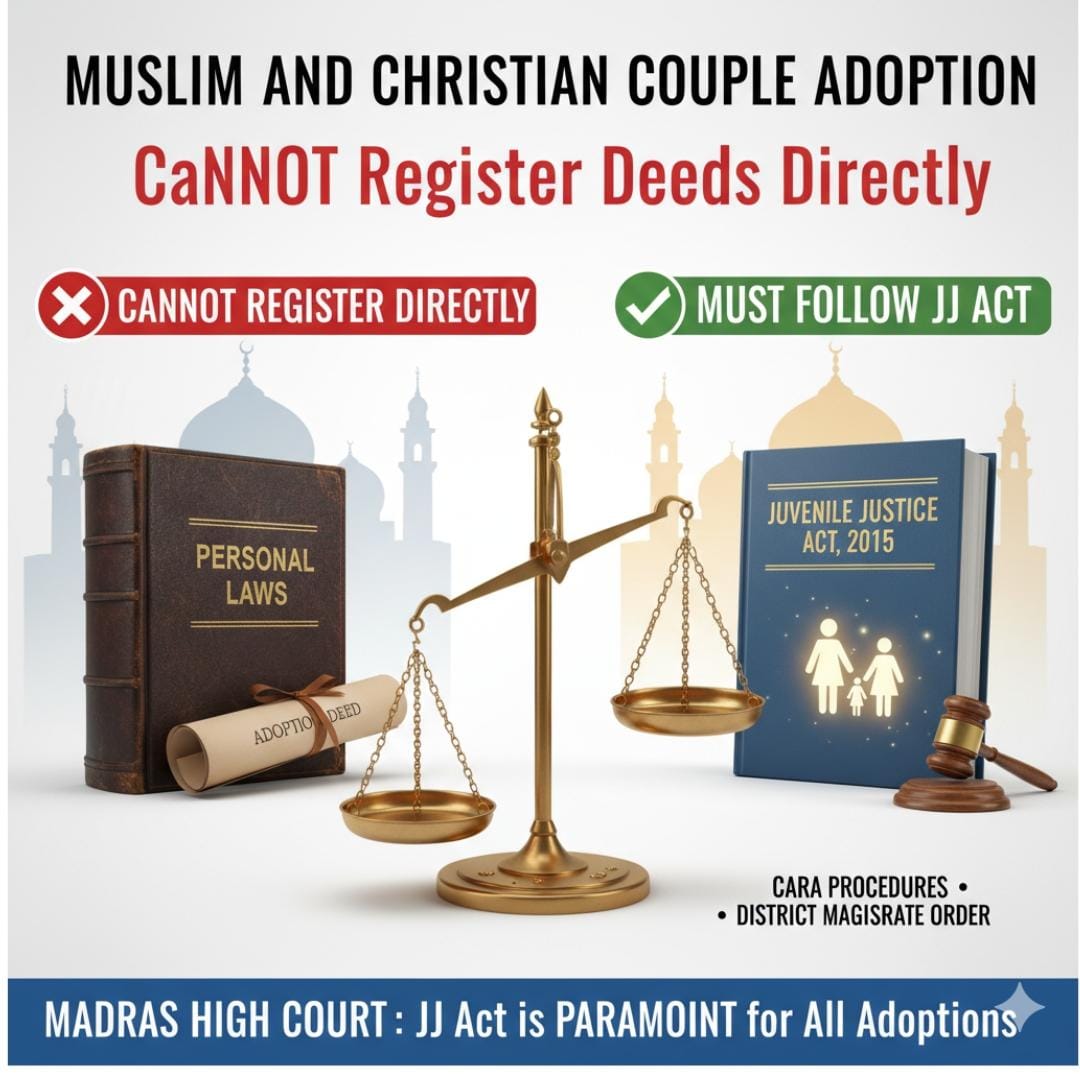In the madras high court ruling the court clearly significs the adoption procedure for non-Hindu communities, the court declined the registration of an adoption deed which is executed by the Muslim and Christian couple and direct them to follow the procedure of Juvenile Justice Act (protection of children) 2015, which provide the legal procedure for non- Hindu families to adopt children.
The case, filed by K. Heerajohn, was heard by Justice G.R. Swaminathan, who also expressed concern over delay in India’s adoption system.
Background
The court was hearing a petition which was filed by a Muslim man against the registration authority for not registering his deed which was presented by him. Petitioner said that he and his wife do not have any child and after the death of his brother who left behind three children, his wife came forward to give one of her children in adoption to the petitioner and his wife. The adoption deed dated13 September 2025, was presented for registration but the authority refuses to register it. Against it, the petition was filed.
Courts observation
The Madurai Bench of the Madras High Court ruled that Muslim and Christian personal laws do not recognize adoption as a legal process but only allow guardianship and foster care, the JJ Act allowed adoption for non- Hindu families also who complied with the procedure. The section 1(4) and section 63 of the JJ Act prevail over the personal law to ensure equality for all children.
The judge stated,
“An adopted child cannot be given a second- class status”
Court also noted that the couple is non- Hindu so they have to allow the procedure of JJ Act 2015.the court observed that parties had approached the District Child Protection Unit and the District Magistrate. The court also said that parties must not seek any easy way of executing an adoption deed and getting it registered.
Justice Swaminathan also uphold for a more efficient adoption process, highlighting that delay can prevent children from experiencing the love of the family.
The Judge stated,
“Any delay in the adoption process derives children of formative experiences that can change their lives”
Decision
Dismissing the plea for a mandamus, Justice Swaminathan permitted the couple to initiate proper procedure to initiate the registration of adoption. He directed the District Child Protection unit to complete verification within three weeks of the application and the District Magistrate to decide within another three weeks.
The writ petition was accordingly disposed of with no order as to costs.
About Author
I am Nishu Lamba, a law graduate and a growing legal writer . I am building my career as a corporate lawyer with my skills in contract drafting and legal research. Through my writing, I aim to make legal topics clear, and easy to understand for readers.

